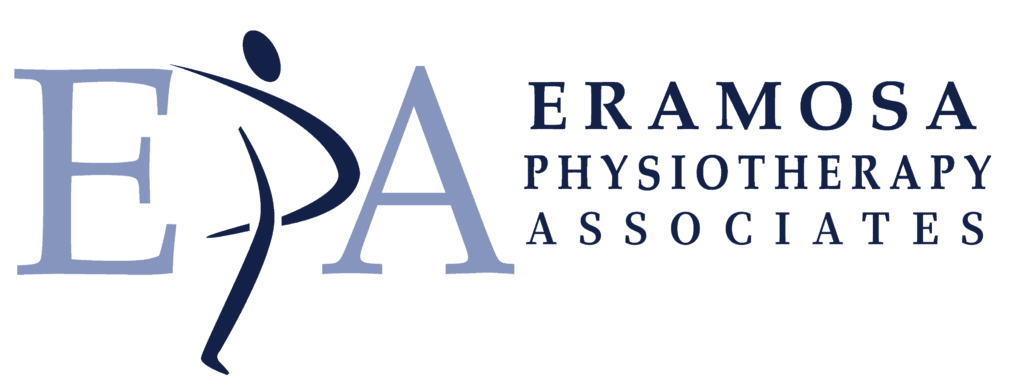What is Occupational Therapy?
 Occupational therapy is a type of healthcare that focuses on helping people develop or regain the skills they need to perform daily tasks and participate in meaningful activities. Occupational therapists work with individuals of all ages and abilities to address physical, cognitive, and emotional challenges that may be hindering their ability to live their best lives. This may involve helping someone recover from an injury, learn new skills after a disability, or adapt to changes in their environment. By providing customized treatment plans and working collaboratively with clients, occupational therapists help people achieve their goals and improve their quality of life.
Occupational therapy is a type of healthcare that focuses on helping people develop or regain the skills they need to perform daily tasks and participate in meaningful activities. Occupational therapists work with individuals of all ages and abilities to address physical, cognitive, and emotional challenges that may be hindering their ability to live their best lives. This may involve helping someone recover from an injury, learn new skills after a disability, or adapt to changes in their environment. By providing customized treatment plans and working collaboratively with clients, occupational therapists help people achieve their goals and improve their quality of life.
Whether you’re recovering from an injury, managing a chronic condition, or simply looking to improve your overall well-being, occupational therapy can help.
Occupational Therapists are trained to provide services relating to:
Incontinence
Pelvic Pain & Sexual Dysfunction
Persistent Genital Arousal Disorder
Male Chronic Pelvic Pain Syndrome
Anxiety & Stress
Depression
Virtual Occupational Therapy Services
Occupational Therapy plays a crucial role in conducting Home Safety Assessments, ensuring individuals can navigate their living environments with confidence and minimize the risk of accidents. Through virtual sessions, occupational therapists can guide clients in assessing their home environments in real time, identifying potential hazards, and offering personalized recommendations for modifications or adaptations. This approach enables clients to actively participate in the assessment process from the comfort of their homes, while therapists can provide expert guidance, education, and resources to enhance safety. Virtual Occupational Therapy thus bridges geographical barriers and ensures that individuals can receive valuable home safety support regardless of their location
Occupational Therapy plays a vital role in supporting individuals during and after cancer treatment by addressing physical, cognitive, and emotional challenges. Through virtual sessions, occupational therapists can provide personalized strategies for managing fatigue, restoring mobility, and adapting daily activities to remotely. These sessions also offer a platform for addressing cognitive difficulties, such as “chemo brain,” and for providing emotional support to cope with the psychological impacts of cancer survivorship. By making post-cancer rehabilitation accessible from home, virtual Occupational Therapy promotes a holistic recovery journey that focuses on enhancing the quality of life and overall well-being.
- strategies for self-care
- stress reduction
- activity modifications
- connecting with appropriate community programs
Virtual Occupational Therapy proves advantageous for conducting mechanical assessment tool assessments by utilizing digital platforms to evaluate and recommend appropriate assistive devices remotely. Through video conferencing and online communication, occupational therapists can guide clients in demonstrating their needs and challenges, allowing therapists to make informed recommendations for adaptive equipment such as mobility aids, ergonomic tools, or home modifications. This virtual approach streamlines the assessment process, increases accessibility, and ensures individuals receive tailored solutions that enhance their independence and functional abilities in their daily lives.
- Occupational Therapy offers valuable support for individuals with psychological disabilities and psychiatric impairments by providing accessible and personalized interventions. Through virtual sessions, occupational therapists can deliver evidence-based strategies for managing anxiety, depression, and other psychological challenges. These sessions can include coping techniques, mindfulness practices, and goal-setting to promote emotional well-being and improve daily functioning. The virtual format enables individuals to receive consistent mental health support, regardless of their location, fostering a sense of empowerment and progress in managing their psychological disabilities.
- Occupational Therapy serves as a valuable avenue for individuals with mild traumatic brain injuries (TBI). Through virtual sessions, occupational therapists can address cognitive challenges, such as memory and attention difficulties, and offer strategies to manage them in daily activities. Additionally, therapists can guide clients in adapting their environments and routines to minimize overstimulation and fatigue, thus promoting optimal recovery and reintegration into daily life. This approach ensures consistent and flexible support for individuals with mild TBI, enhancing their cognitive and functional outcomes.
Occupational Therapy plays a crucial role in providing ergonomic education to healthcare providers, such as PSWs and nurses, ensuring they can maintain their well-being and performance in demanding work environments. Through virtual platforms, occupational therapists can offer personalized guidance on proper body mechanics, posture, and equipment setup to prevent musculoskeletal injuries. These sessions can also address strategies for managing stress and fatigue, fostering resilience and sustainable practice. By virtually delivering ergonomic education, Occupational Therapy equips healthcare providers with practical tools to enhance their physical health and overall job satisfaction.
EPA Offers Virtual Occupational Therapy Services in the comfort of your home.
Call a clinic to book an assessment, all appointments are held virtually!
Treatment to Improve Your Health?


- managing your symptoms
- managing the emotions intertwined with them
- navigating your relationship with your symptoms, your body, and with movement
- re-engaging in the life activities, roles, and relationships that are important to you.
Illness, disability, pain or significant life transitions can disrupt your ability to engage in the life roles, activities, and relationships that are important to you. Occupational Therapists are trained to merge your lived experience with the best available evidence in order to help you find creative ways to navigate these challenges, manage symptoms, optimize function, and find a life balance that works for you.
Care plans provided by OT are unique to you and your goals.
Individualized care plans may include nervous system regulation, somatic & sensory tools, Cognitive Behavioural Therapies, Graded Exposure, mindfulness techniques, and exploring day-to-day functioning, day-to-day demands, and life balance. Common modalities include:
- Trauma-informed care
- Exploring behavioural strategies, lifestyle factors and habits to support your pelvic health
- Exploring your sensory processing preferences to support nervous system regulation
- Rehabilitative exercises
- Ergonomic assessment & functional movement
- Activity pacing and graded exposure to triggering activities
- Acceptance and Commitment Therapy
- Cognitive Behavioural Therapy
Who would benefit from an OT on their pelvic health care team?
If you are struggling with incontinence, urgency/frequency, pelvic organ prolapse, constipation, and/or pain that is disrupting your mental health and your capacity to live your life, Occupational Therapy would be a fantastic member of your team.
Occupational Therapy may be a fantastic addition to your treatment team if:
- You are experiencing persistent pain, pelvic pain, pelvic organ prolapse, diastasis recti, urinary urgency, frequency, leaking or other forms of pelvic floor dysfunction.
- You are struggling with some of the common aches and pains of pregnancy or the postpartum period and looking for some movement coaching/adaptations to optimize your comfort and recovery during these transitions.
- You are working with a Pelvic Health Therapist in your area but need help navigating the impact that this is having on your emotional wellness, relationships, and ability to engage in your day-to-day life and meaningful activities.
Meet the EPA Occupational Therapists


Lara has worked as an Occupational Therapist in the mental health and addictions field since 2009. In 2016, Lara launched Pelvic Resilience, an Occupational Therapy practice dedicated to helping individuals struggling with pain, pelvic health challenges, and other distressing symptoms to get back to living a rich and meaningful life. As an Occupational Therapist, Lara firmly believes in offering approaches to pelvic health recovery that are creative, flexible, accessible and focused on restoring quality of life. As a skilled mental health clinician, Lara also offers psychotherapeutic strategies in the work that she does with her clients. Cognitive Behavioural Therapy and Acceptance and Commitment Therapy are evidence-based approaches that guide individuals toward a more empowered and flexible recovery by offering new ways of managing symptoms and the emotions that are intertwined with them. In her spare time, you will find Lara hanging with family, reading a good book, crocheting something special, or playing Ultimate Frisbee!
Book online with Lara!


Donna Legge-Nevett, Occupational Therapist. Donna brings 20 years of therapy experience to this pediatric therapy practice. In addition to Occupational Therapy services, Kids Can Shine can link families with the necessary resources, supports and services in the community to help meet their needs.
Kids Can Shine offers a range of supportive therapy services and programs for children and families. In addition to direct therapy, Kids Can Shine can connect families with necessary resources and other therapy services in the community.
Donna is also very dedicated to providing continuing education opportunities to other professionals and therapists in the community. Her commitment to bringing national and international speakers and educators to Ontario continues to be a driving force in her quest to support local children and families. Her perseverance to enhance the resources and support for clients and families in Wellington County and surrounding areas is unwavering.
Book online with Donna!


Katie George is a skilled clinician with nearly 20 years of experience as an Occupational Therapist. Having graduated with a Bachelor’s degree in Health Sciences and a Master’s Degree in Occupational Therapy from Western University, she always knew she would support children and their families to reach their goals. She began her career working in an Augmentative Communication Clinic, supporting children, youth and adults with diverse physical abilities with their writing and access needs. Later transitioning to a role at KidsAbility, she supported children and their families, in home, community and childcare settings. Her experiences at KidsAbility were diverse in nature as she supported a variety of programs. With specialized training in Picky Eating, Sensory Processing, PECS, Autism, Therapeutic Listening, Writing Skills, Kinesio-Taping, Neuro-Developmental Treatment and Solution-Focused Coaching, she brings vast knowledge and experience to support the unique needs of her clients.
Working with clients and their families to establish goals that are meaningful to them is at the heart of the work she does. Utilizing a family and client-centred approach she can support children to develop the skills to address play, social and self-care needs as well as address self-regulation, attention, executive functioning and school-readiness skills.
Katie looks forward to welcoming families to her practice to address their goals in a collaborative, client-centred manner.
Book online with Katie!


Roberta Saunders is an occupational therapist registered with the Ontario College of Occupational Therapists. She is an active member of the Canadian Association of Occupational Therapists and the World Federation of Occupational Therapists. She is a private practitioner, working for over 30 years, with expertise in complex injuries and conditions including upper extremity injuries, neurological conditions and injuries, pain syndromes, soft tissue, spinal cord, Long Covid, and head injuries/concussions. She has worked with both adult and pediatric rehabilitation, working in community and institutional settings, home functional assessment, functional abilities evaluation, and future care assessments. She conducts assessments for Insurers and WSIB, as well as both plaintiff and defence counsel. She is a sworn expert in the Superior Court of Canada and has testified in multiple legal proceedings, the most recent case being Howard Mutual Ins. Co. and Clendenning (Montreal – November 2022).
EPA Offers Virtual Occupational Therapy Services in the comfort of your home.
Call a clinic to book an assessment, all appointments are held virtually!


I have been an occupational therapist in Toronto for 15 years since graduating from McMaster University in 2006. I have practiced in a variety of areas including in-home assessments for clients following a motor vehicle collision, case management following workplace injury, acute care after orthopaedic surgery and in-patient rehabilitation following a serious injury or progressive illness. Regardless of the setting, my focus has always been to help people maximize their independence and safety while returning to meaningful activity, which may include personal care, leisure or productivity.


